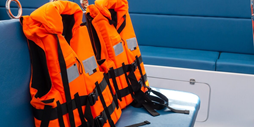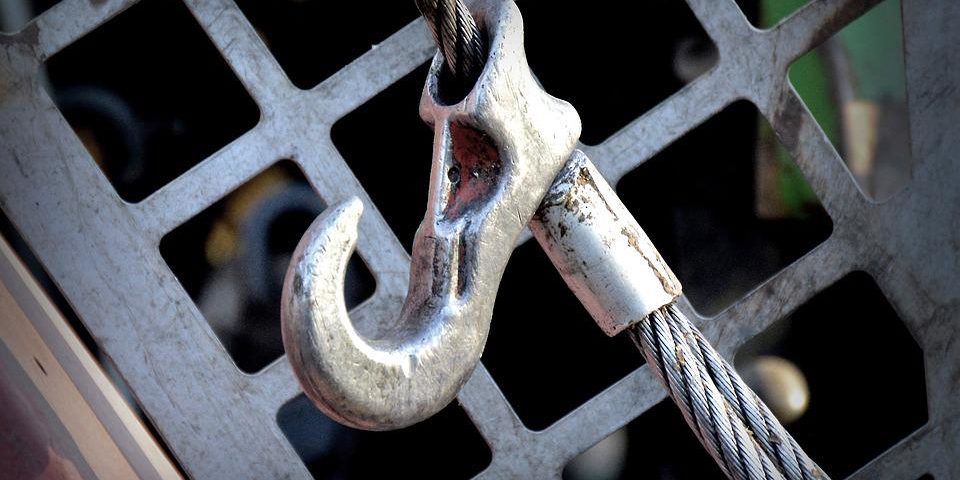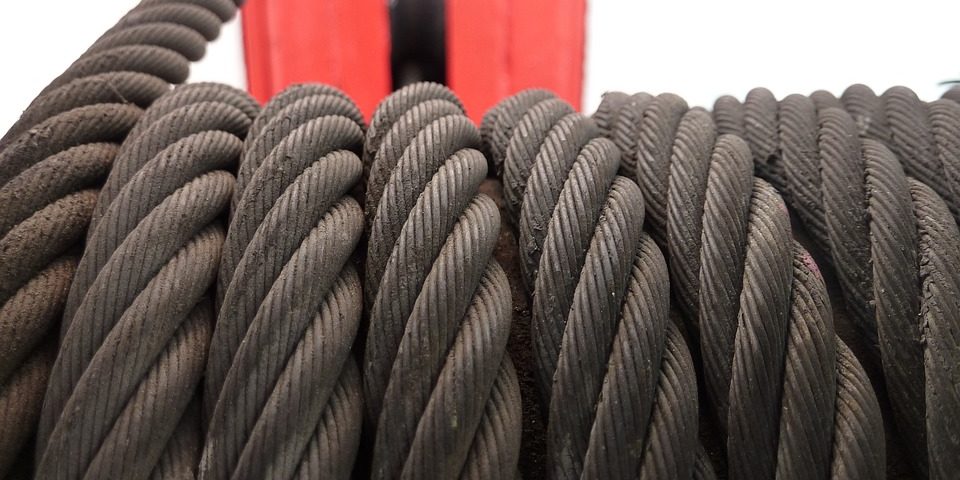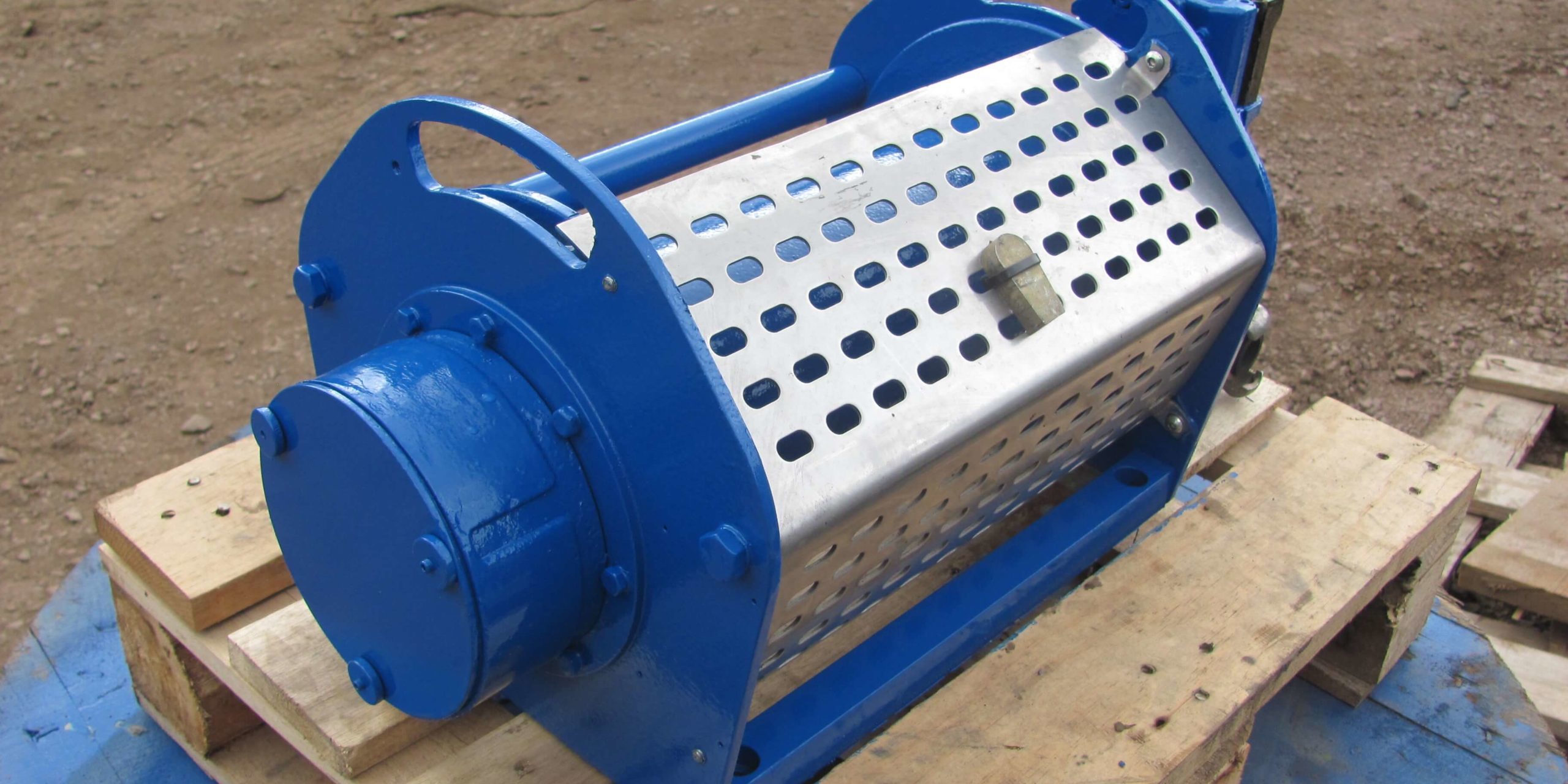TEN ESSENTIAL EQUIPMENT ITEMS USED IN THE MARINE INDUSTRY
11-01-2024
The marine industry relies on a wide range of equipment to ensure smooth operations and to keep workers and passengers safe. From first aid kits to marine winches, each piece of equipment plays an important role in various marine activities. In this blog, we will explore ten pieces of equipment that are essential in the marine industry.
A BRIEF EXPLORATION OF THE MARINE SECTOR
The marine sector encompasses a wide array of interconnected industries and activities that have a huge impact on global trade, energy production, environmental conservation, and scientific research. From shipping, transportation and defence purposes to tourism and recreation, these are the main fields covered by the marine sector:
SHIPPING AND TRANSPORTATION
Shipping and transportation are a huge part of the marine industry. This involves the movement of goods, commodities, and people across the world’s waterways, from the Atlantic Ocean to the Suez Canal. From massive cargo ships carrying containers to cruise liners offering luxurious travel experiences, the shipping industry propels international trade and tourism around the world. Port operations, logistics management, vessel maintenance, and compliance with international maritime regulations all play an important role in facilitating this massive sector.
OFFSHORE ENERGY PRODUCTION
The marine sector also covers offshore energy production, which involves extracting oil, gas, and renewable energy resources from beneath the seabed. Offshore drilling platforms, floating wind farms, and tidal energy installations are examples of infrastructure used in this sector. While offshore energy production does contribute to the global energy supply, it tends to be a highly dangerous and unsustainable practice.
MARINE RESEARCH AND EXPLORATION
Research and exploration are among the most exciting elements of the marine sector. For hundreds of years, scientists and researchers have studied marine ecosystems, biodiversity, climate change, and oceanography to better understand our planet’s intricate marine systems. This knowledge helps in developing sustainable practices, conserving marine resources, and reducing the impacts of human activities on the oceans.
CONSERVATION AND ENVIRONMENTAL PROTECTION
Conserving and protecting marine ecosystems and biodiversity is essential to maintaining the habitats of the ocean’s wildlife. Efforts among scientists, activists and conservationists are made to establish marine protected areas, regulate fishing practices, and combat pollution. Recent initiatives have focused on preserving coral reefs, marine mammals, and endangered species, while also addressing issues like plastic pollution and climate change.
NAVAL AND DEFENCE OPERATIONS
Naval and defence operations form an integral part of the marine sector, with navies around the world striving to ensure maritime security, protect national interests, and participate in humanitarian missions. This involves the construction and maintenance of naval vessels, submarine operations, and maritime surveillance to safeguard territorial waters and international shipping routes.
TOURISM AND RECREATION
With people all over the world eager to uncover the mysteries of the ocean, tourism and recreation contribute significantly to the marine sector. Coastal regions have historically attracted tourists with activities such as sailing, snorkelling, and beach holidays, while cruise tourism has also gained popularity by offering travellers the opportunity to explore multiple destinations while enjoying onboard amenities and entertainment.
ENGINEERING AND TECHNOLOGY
The marine sector heavily relies on engineering and technology advancements. Shipbuilding, offshore platform construction, underwater robotics, and marine navigation systems are just a few examples of the technological innovations that drive this sector forward. Continuous research and development in marine engineering enhance safety, efficiency, and sustainability in various marine operations.
10 ESSENTIAL EQUIPMENT ITEMS YOU’LL COME ACROSS IN THE MARINE INDUSTRY
From allowing operations to run smoothly to keeping workers and passengers safe, the marine industry would be incomplete without the help of essential tools and equipment. Here’s the most important marine equipment you are likely to encounter:
LIFE JACKETS
No ship or boat should set sail without the provision of life jackets, a vital piece of safety equipment that every individual on board should have access to. They provide buoyancy and keep individuals afloat in case of emergencies, significantly increasing the chances of survival in the event of accidents or unexpected situations.
NAVIGATION SYSTEMS
Getting lost at sea is something to be avoided at all costs, and so accurate navigation is crucial in the marine industry. Navigation systems, such as GPS (Global Positioning System) and radar, help vessels determine their position, plan routes, and avoid potential hazards. These systems provide real-time information, ensuring safe and efficient navigation for captains and ship workers.
COMMUNICATION EQUIPMENT
Effective communication is essential for coordination and safety in the marine sector. Equipment like marine radios, satellite phones, and distress beacons enable reliable communication between vessels, ports, and emergency services, ensuring quick response times and effective coordination during emergencies.
MARINE RADARS
Marine radars use radio waves to detect and track other vessels, land masses, and navigational hazards. They provide valuable information about the surrounding environment, including the distance, speed, and direction of objects, helping to prevent collisions and navigate safely, especially in low visibility conditions.
MARINE VHF RADIOS
Marine VHF (Very High Frequency) radios are specifically designed for communication on the water. They allow vessels to communicate with each other, nearby ports, and the coastguard. VHF radios are essential for relaying important information, coordinating manoeuvres, and requesting assistance if needed.
BILGE PUMPS
Bilge pumps are used to remove water that accumulates in the bilge, the lowest part of a vessel. They help prevent flooding and keep the vessel afloat and are particularly useful during heavy rain or in case of leaks.
FIRE SAFETY SYSTEMS
Fire safety is of critical importance in the marine industry, as in many cases it can take on-shore fire assistance teams a substantial time to reach accidents on the water. Fire suppression systems, including fire extinguishers, fire blankets, and automatic sprinkler systems, are essential for quickly and effectively extinguishing fires and preventing their spread. These systems help protect lives, property, and the environment.
SAFETY LIGHTS
The ocean can be a dangerous place – it’s common for sailors and marine workers to recount tales of looking out at the open sea at night and experiencing complete darkness. Marine safety lights, such as navigation lights and emergency beacons, enhance visibility and aid in identifying vessels at night or in low visibility conditions. These lights help prevent collisions and ensure compliance with international maritime regulations.
FIRST AID KITS
From storms and shipwrecks to food contamination and sickness outbreaks, the marine industry can be a hazardous place to live and work. Marine first aid kits are equipped with essential medical supplies to provide immediate medical assistance in case of injuries or illnesses on board. These kits could contain plasters, bandages, antibiotics, heat and cold packs, thermometers, common cold medication, and more.
WINCHES
Winches are mechanical devices that provide controlled lifting, pulling, and towing capabilities. They are commonly used for anchoring, mooring, and launching or retrieving boats and other watercraft:
Hydraulic winches are widely used at sea due to their exceptional strength and reliability in challenging marine environments. These winches are capable of handling heavy loads and can withstand harsh weather conditions. They are instrumental in tasks such as deploying and retrieving subsea cables, anchoring vessels, and manoeuvring offshore platforms.
Electric winches, popular for their ease of use, are also commonly used for marine purposes. They are easily integrated into different types of vessels, from large boats to small ships, with the ability to be mounted in various locations. These winches also do not require hydraulic fluids, reducing the risk of leaks or spills that could harm marine ecosystems.
HIRE MARINE WINCHES FROM ATLAS WINCH HIRE & HOIST SERVICES,
If you are looking for a winch for your boat, then look no further than us here at Atlas Winch Hire & Hoist Services. Not only are we experts in everything winch and hoist related, but we offer numerous electric winch solutions to suit your needs. Whether you’re looking for a small electric winch for your sailboat or yacht, or are in need of mooring equipment, such as an anchor for a large ship, then we’ve got you covered. Get in touch with us today by emailing us at info@winhhire.com or telephoning us on 01899 221 577 to discuss the solutions we can offer you.






